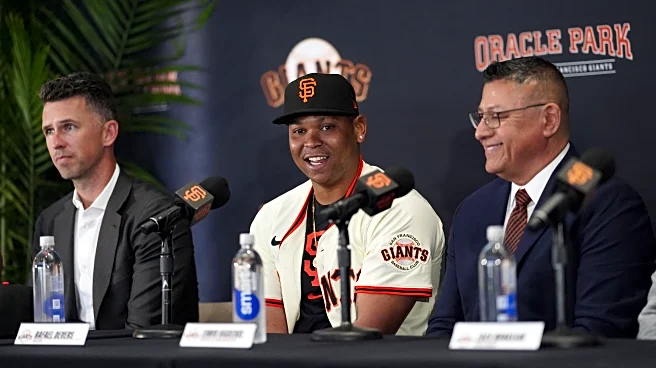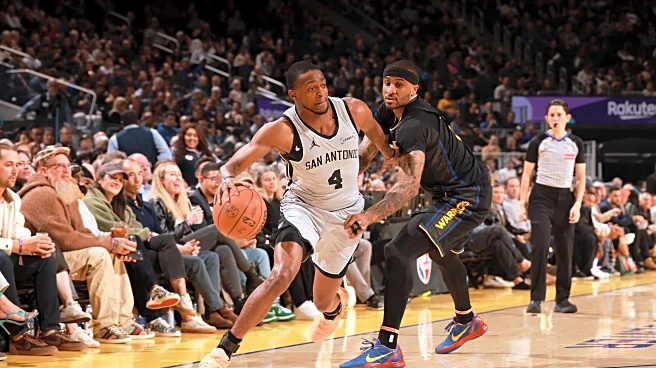Nearly four months later, what’s your stance on the Rafael Devers trade?
I don’t feel any differently about it than I did the day it went down.
Baseball is a largely individual sport masquerading as a collective endeavor. On-field chemistry matters little. One player’s performance
doesn’t materially effect the performance of anyone else. And the fit of a player’s particular skill set relative to those of his teammates matters a little bit, but not much. Thus, putting together a winning team isn’t all that complicated: you assemble as many talented players on the roster as you possibly can. That’s the front office’s job — to add more talent to the roster than gets taken away.
Red Sox management bungled the Alex Bregman signing vis-à-vis Devers from day one (or even before day one, since the problems started long before Bregman was ever signed, as management continued to signal that Devers was the team’s third baseman and Bregman might even play second). Devers responded to the situation in an immature way and displayed an undeniably shitty attitude. But he still did exactly what he was being paid to do with the bat. He hit the crap out of the ball and helped the Red Sox win games.
And I don’t buy for a second that his trade was somehow a catalyst to better play. The Red Sox’ second half surge was fueled by the pitching of Brayan Bello and Lucas Giolito, and the offensive surges by Ceddanne Rafaela and Trevor Story, not by the fact that they swapped out Devers for an inferior bat in Masataka Yoshida. If you’re simply going to point to the team’s overall record before and after the trade and claim that losing Devers made them better, I’d counter that following the same logic would lead one to conclude that adding Jordan Hicks is what turned the team around.
There is no doubt in my mind that the 2025 Red Sox would have won more baseball games had they not removed one of the best hitters in the league from the roster. And there is no doubt in my mind that they would be a stronger team with his bat going into 2026, 2026, 2028, etc. I don’t really understand how anyone could argue otherwise. And, now, replacing his bat is one more item on an offseason to-do list that’s already got a lot on it.
—Dan Secatore
My stance is that I don’t want to talk about it right now.
— Fitzy Mo Peña
I still hate it and will probably hate it for the rest of my life. Angering the face of your franchise, who recently signed what was essentially a lifetime extension, for maybe one season of 31-year-old Alex Bregman, should have never EVER happened. They in no way ever NEEDED Alex Bregman, and it will forever be frustrating to look back upon this disaster. To be clear, I do think the end result was to blame on both parties, but the initial conflict stemmed completely from a boneheaded front office decision, which was then blamed on a foreign player who was then vilified through often poorly interpreted summaries of what he said.
Can you tell it still pisses me off? If you can’t tell now, I literally wrote an article translating Rafael Devers’ infamously misinterpreted interview whilst getting ready for a last-day-of-undergrad party and then drove to Kauffman Stadium the next day to get into that Breslow/Henry/Devers meeting, but was not admitted because they were too scared of me (the last part of that is not true).
— Avery Hamel

The Devers signing itself was a mistake. It was an overreaction to trading a future Hall of Famer and then letting Xander Bogaerts leave (yes the contract was insane, he did right by him by taking that money) Doing things like signing Trevor Story and saying he wasn’t a replacement for Bogaerts started the path to the point that he was going to test free agency rather than an extension. I think an insider somewhere said the Story deal is what he was Bogaerts was looking for from the Red Sox.
I try not to think about the money because 1. It’s not my money and 2. My preference is the Red Sox spend the amount needed to complete. But at the end of the day, because of a number of other dominos, Devers was willing to learn first base for the Giants in-season but not the Red Sox? I’d rather not cheer for people who operate on spite.
—Mike Carlucci
I’m just as bitter today as I was four months ago. While it was handled poorly by everybody involved, it was all set in motion from terrible form by Red Sox management, specifically Craig Breslow. Devers felt lied to as a player by Breslow when he was moved off of third base, and I felt lied to as a fan when he never did a thing to improve the team at the deadline, as repeatedly promised. Breslow then had the unmitigated gall to tell us that he was so “uncomfortably aggressive” that other GMs needed to tell him, “Hey, that’s enough.”
Without Devers, or a subsequent fill-in, the team did not have the ceiling of a pennant-winning team. Yankees fans and players are still doing backflips to have him out of the division.
—Bob Osgood
There’s a lot to unpack here. I’ve been writing an article about Rafael Devers in my head for over a year but timing and a certainty that I was all alone in my feelings (except for possibly my good friend Mike Carlucci) got in the way every time. I plan to write it this off-season for sure. From the standpoint of only the trade, I think it was a very curious baseball decision as Devers was all but singlehandedly carrying the offense. I also think that the front office didn’t ask for enough in return. Lastly, their attempts to slander Devers after he left (he drank too much as a teenager after winning a big game or something?) were ridiculous. I’m thankful that those pathetic attempts didn’t rise to the level of doing real reputational damage, as they did when our fearless leaders did the same with Terry Francona when he left. No one came out of this looking good. Not really even the Giants.
—Maura McGurk
There’s an old show that used to air on the National Geographic channel called “Seconds from Disaster.” It covered everything from plane crashes to weather disasters to the sinking of the Titanic. But what it really put the microscope on, and what you really gain an appreciation for the more episodes you consume, is how much any huge disaster is always an accumulation of a long line of little problems that are perfectly positioned to create one gigantic progrlem. You don’t get monumental movement from a solo source. You instead have a pile of little, seemingly unrelated factors coming together to create the unthinkable, and people only realize the impossible is possible in the final Seconds from Disaster.
The point? The Rafael Devers trade followed this formula. It was shocking, it was monumental, and it was caused by a million grains of sand adding their weight together. As Mike noted, perhaps the contract is never offered in the first place if John Henry doesn’t get booed at a Bruins game. Alex Bregman could have signed elsewhere, the Red Sox front office could have been more open with their communication, Devers could have refrained from throwing himself a pity party, Triston Casas’ knee could have just not exploded, the meeting in Kansas City could have gone differently, the contract could have been less of an end-all-be-all with a club obsessed with cost efficiency. It goes on and on, and I’m sure all of you could spend all day adding more pieces to the puzzle in the comments section.
But here’s where the story might differ from the show: I’m not convinced this will turn out to be a disaster for the Red Sox in the long-term. If they play their cards right, this group could be at the beginning of a long run of success, and one of the things that struck me most after the trade is how many guys in the clubhouse just didn’t seem all that bothered by it.
The front office now has an opportunity to use the resources and roster space created by the Devers trade to better align things with the current core, and honestly, that needs to be one of the biggest goals for the offseason. Use your financial and prospect might to create a roster so strong that people don’t miss Devers. Interestingly enough, Roman Anthony kind of covered that for them most of the summer. We didn’t really starve for Devers’ bat until Anthony went down in September, but in the last couple of weeks, oh boy was that missing thunder notable.
In other words, much of the aftermath of the trade and whether it’s ultimately seen as a disaster or a new dawn will come down to our offseason wish list, which includes creating a more layered, deeper lineup. But now I’m getting ahead of myself. That’s a different segment in our postmortem coming up next week.
—Matthew Gross










